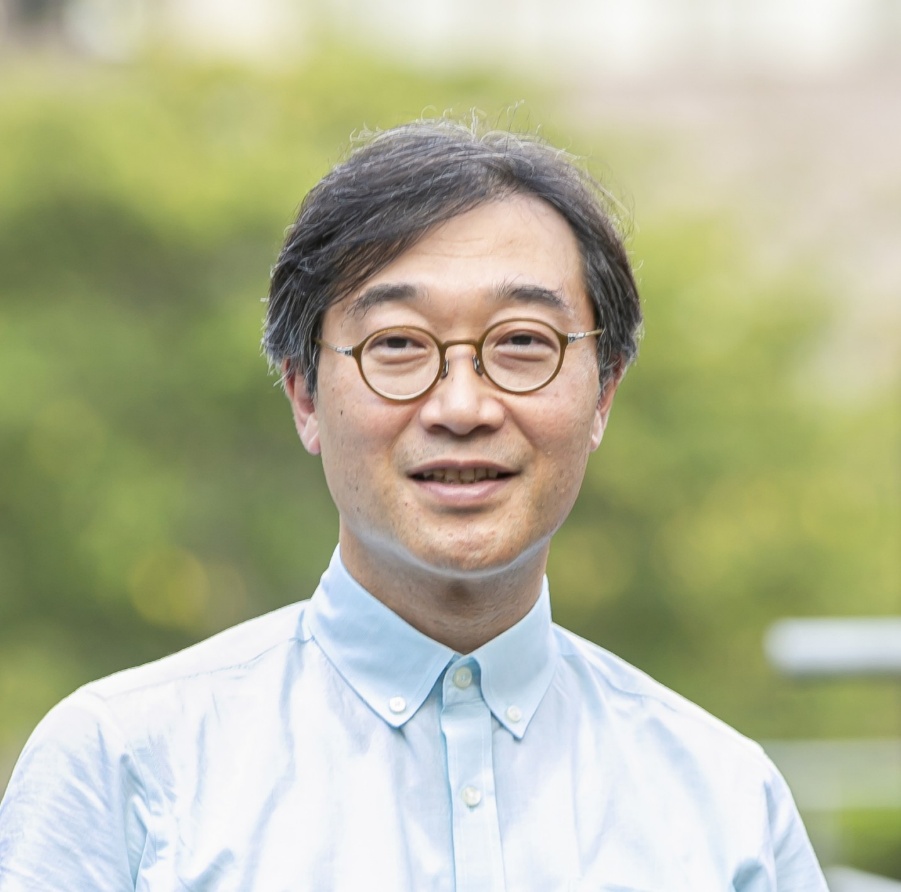FURUYASHIKI, Tomoyuki

氏名Name
FURUYASHIKI, Tomoyuki
所属・職名Affiliation, Title, etc.
Kobe University Graduate School of Medicine, Professor
研究室HPWebsite
一言メッセージShort Message
本プロジェクトでの研究概要Outline of the research in this project
Chronic stress induces emotional and cognitive dysfunction, increasing the risk of mental and neurological disorders, but its underlying mechanisms remain unclear. We have utilized a chronic social stress model in mice to demonstrate that emotional and cognitive dysfunction induced by chronic stress is significantly influenced by inflammatory responses in the brain and periphery, due to a breakdown in inflammation-regulating mechanisms, whereas controlling inflammatory responses can promote stress resilience. Given that aging and dementia are associated with inflammation in the brain and periphery, we have hypothesized that enhancing stress resilience as a reservoir function by regulating inflammation could suppress emotional and cognitive dysfunction associated with aging and dementia. In this study, we will employ an advanced and comprehensive approach, combining the chronic social stress model in mice with multidimensional behavioral analysis, single-cell multi-omics analysis, whole-brain imaging, and other cutting-edge techniques. We aim to elucidate the molecular and cellular mechanisms regulating inflammation, as well as the functional and structural reorganization of neural circuits governing stress resilience, and to develop strategies for enhancing stress resilience based on these mechanisms. Furthermore, we will conduct proof-of-concept studies applying these stress resilience-enhancing strategies to the prevention and treatment of dementia using aged mice and dementia model mice. Additionally, clinical research will be conducted to establish a technological foundation for the development of novel anti-dementia drugs and disease biomarkers.

これまで主な研究内容Outline of main research so far
Stress resulting from adverse environments and demanding conditions has diverse effects on both physical and mental functions, increasing the risk of neuropsychiatric disorders such as depression and dementia. However, the mechanisms underlying stress remain poorly understood, and no effective therapeutic strategies specifically targeting stress have been established. Using a mouse social stress model, we demonstrated that short-term stress enhances resilience by promoting dendritic outgrowth in medial prefrontal cortex neurons via the neurotransmitter dopamine. In contrast, long-term stress induces behavioral alterations by triggering dendritic atrophy in these neurons through inflammation-related molecules derived from microglia, the brain’s immune cells. Furthermore, we found that long-term stress mobilizes blood cells from the bone marrow, leading to their infiltration into the brain and contributing to behavioral changes. Building on these findings, our research aims to elucidate the biological foundations of stress-induced physiological and psychological changes and resilience, ultimately driving the development of innovative therapeutics to combat neuropsychiatric disorders such as depression and dementia.


主な経歴・受賞歴等Career, Awards, etc.
Career
- 1997
- Kyoto University Faculty of Medicine
- 2001
- Kyoto University Graduate School of Medicine (Ph.D. in Medicine)
- 2001-2003
- JSPS Research Fellow (PD)
- 2003-2004
- Assistant Professor, Kyoto University Graduate School of Medicine
- 2004-2008
- Associate Research Scientist, Department of Psychological & Brain Sciences, Johns Hopkins University
- 2008-2012
- Assistant Professor, Kyoto University Graduate School of Medicine
- 2012-2014
- Associate Professor, Kyoto University Graduate School of Medicine
- 2014-
- Professor, Kobe University Graduate School of Medicine
Awards
- 2012
- Academic Encouragement Award, The Japanese Pharmacological Society
- 2015
- Astellas Foundation for Research on Metabolic Disorders, Best Chairman’s Award
- 2024
- CINP (Collegium Internationale Neuro-Psychopharmacologicum) Sumitomo Pharma Brain Health Basic Research Award
主要業績Major Publications
Okuda Y, Li D, Maruyama Y, Sonobe H, Mano T, Tainaka K, Shinohara R, Furuyashiki T (2024) The activation of the piriform cortex to lateral septum pathway during chronic social defeat stress is crucial for the induction of behavioral disturbance in mice. Neuropsychopharmacology Online ahead of print.
https://doi.org/10.1038/s41386-024-02034-7
Horikawa I, Nagai H, Taniguchi M, Chen G, Shinohara M, Suzuki T, Ishii S, Katayama Y, Kitaoka S, Furuyashiki T (2024) Chronic stress alters lipid mediator profiles associated with immune-related gene expressions and cell compositions in mouse bone marrow and spleen. J Pharmacol Sci 154:279-293.
https://doi.org/10.1016/j.jphs.2024.02.010
Kitaoka S, Tomohiro A, Ukeshima S, Liu K, Wake H, Kimura SH, Yamamoto Y, Nishibori M, Furuyashiki T (2023) repeated social defeat stress induces HMGB1 nuclear export in prefrontal neurons, leading to social avoidance in mice. Cells 12:1789.
https://doi.org/10.3390/cells12131789
Akiyama S, Nagai H, Oike S, Horikawa I, Shinohara M, Lu Y, Futamura T, Shinohara R, Kitaoka S, Furuyashiki T (2022) Chronic social defeat stress increases the amounts of 12-lipoxygenase lipid metabolites in the nucleus accumbens of stress-resilient mice. Sci Rep 12:11385.
https://doi.org/10.1038/s41598-022-15461-7
Ishikawa Y, Kitaoka S, Kawano Y, Ishii S, Suzuki T, Wakahashi K, Kato T, Katayama Y, Furuyashiki T (2021) Repeated social defeat stress induces neutrophil mobilization in mice: maintenance after cessation of stress and strain-dependent difference in response. Br J Pharmacol 178:827-844.
https://doi.org/10.1111/bph.15203
Furuyashiki T, Kitaoka S (2019) Neural mechanisms underlying adaptive and maladaptive consequences of stress: Roles of dopaminergic and inflammatory responses. Psychiatry Clin Neurosci 73:669-675.
https://doi.org/10.1111/pcn.12901
Nie X, Kitaoka S, Tanaka K, Segi-Nishida E, Imoto Y, Ogawa A, Nakano F, Tomohiro A, Nakayama K, Taniguchi M, Mimori-Kiyosue Y, Kakizuka A, Narumiya S, Furuyashiki T (2018) The innate immune receptors TLR2/4 mediate repeated social defeat stress-induced social avoidance through prefrontal microglial activation. Neuron 99:464-479.e7.
https://doi.org/10.1016/j.neuron.2018.06.035
Shinohara R, Taniguchi M, Ehrlich AT, Yokogawa K, Deguchi Y, Cherasse Y, Lazarus M, Urade Y, Ogawa A, Kitaoka S, Sawa A, Narumiya S, Furuyashiki T (2018) Dopamine D1 receptor subtype mediates acute stress-induced dendritic growth in excitatory neurons of the medial prefrontal cortex and contributes to suppression of stress susceptibility in mice. Mol Psychiatry 23:1717-1730.
https://doi.org/10.1038/mp.2017.177
Tanaka K#, Furuyashiki T#†, Kitaoka S#, Senzai Y#, Imoto Y, Segi-Nishida E, Deguchi Y, Breyer RM, Breyer MD, Narumiya S† (2012) Prostaglandin E2-mediated attenuation of mesocortical dopaminergic pathway is critical for susceptibility to repeated social defeat stress in mice. J Neurosci 32:4319-4329. (#equally contributed, †co-corresponding author)
https://doi.org/10.1523/JNEUROSCI.5952-11.2012
Furuyashiki T†, Narumiya S (2011) Stress responses: the contribution of prostaglandin E2 and its receptors. Nat Rev Endocrinol 7:163-75. (†corresponding author)
https://doi.org/10.1038/nrendo.2010.194



